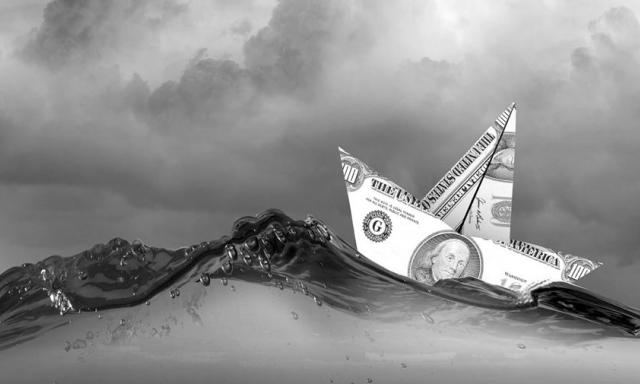

 Article
Article

 The scarcity of fresh water will be a major challenge to the 21st century, says Peter Debaere, associate professor of business administration at the Darden School of Business.
The scarcity of fresh water will be a major challenge to the 21st century, says Peter Debaere, associate professor of business administration at the Darden School of Business.

Insights from
Written by
The scarcity of fresh water will be a major challenge to the 21st century, says Peter Debaere, associate professor of business administration at the Darden School of Business.
“Population growth, pollution, rising standards of living, and the diet and lifestyle changes they imply will continue to increase the demand for water and strain available water resources,” says Debaere, an international economist. One-fifth of the world’s population is currently suffering from water scarcity, he says.
Debaere should know. He is Darden’s resident water expert, who is leading a group of scholars trying to build a global water center at the school and the university. He is studying water as a source of comparative advantage and also investigating whether countries use water efficiently on a global scale.
Debaere is approaching these critical water issues with a world view. “It’s important to approach water from a global perspective, because oftentimes when water issues arise, people tend to focus on local circumstances. We have water scarcity, so how can I get more water, they ask. The better question may be: Are you producing what you should be producing, given your water availability? This is relevant. At one point, Saudi Arabia was exporting wheat. Can you imagine?”
“I am basically trying to see to what extent water determines what a country in a global economy produces and what it exports and imports,” he says. His research was published in the American Economic Journal: Applied Economics, titled “The Global Economics of Water: Is Water a Source of Comparative Advantage?”
What his research found is that though the availability of water determines the types of goods that countries produce, the “role of water is not as key as that of human and physical capital. And because of that, my research also suggests that variations in availability of water due to climate change will not especially affect more advanced economies, as many people would believe. I’m not saying climate change is not important, but it matters what country you are as to the extent of the impact.” Climate change includes significant changes in temperature and precipitation, among other effects.
Agrarian countries and those with emerging economies, such as India or China, will feel the effects of climate change more than developed countries, says Debaere. “Think of the U.S. We’re rich, not because of the relative abundance of water, but because of skilled labor and capital that is available here. Having water is not a sufficient condition for being well-off. The drivers are the human and physical capital you have.”
“Water is important for agriculture,” he adds. “But in the U.S., agriculture is a small percent of GDP. So it matters, but perhaps not so much as people want to believe.”
From 1997 to 2009, Australia sustained one of its worst droughts on record — named the Big Dry. “It was terrible,” says Debaere. “But look at how well Australia’s economy performed anyway. The U.S. was in a recession in 2008 due to the financial crisis. Australia was not. The Big Dry did have an impact on Australia’s GDP, but it’s not like it cracked or killed the entire economy.”
Despite fears about an impending water crisis, the world is not running out of water; there is more than enough fresh water on earth to satisfy the growing demand. The problem is water distribution, he says.
“That is the key thing to note. Basically, it’s not that we don’t have enough water, but that water is distributed across the world in a very uneven fashion. It’s because of this uneven distribution that you have to allocate what you produce where, in a fashion that’s consistent with what you have.”
“How could Saudi Arabia be exporting wheat? It’s because water is often mispriced,” Debaere says. “If water is not priced to its relative scarcity, then you have misallocation of resources. By producing the goods you should be producing, you might save water. Saudi Arabia producing wheat is not a good thing from an economist’s point of view.”
Debaere is now studying water markets where land titles and water titles are separate. He’s also investigating water use in the U.S. Since 1980, water consumption has stayed the same or gone down, even as the country’s population and GDP has increased.
As for the proposed global water center, Debaere wants to bring scholars from different disciplines together to focus on how societies can “navigate the competing water uses of agriculture, cities and the environment, given that economies grow, populations grow and the climate changes.”
Peter Debaere, associate professor of business administration, is author of “The Global Economics of Water: Is Water a Source of Comparative Advantage?” published in American Economic Journal: Applied Economics (Volume 6, No. 5, 2014).
Debaere is a leading international economist, with a focus on international trade, multinationals and trade policy. His work addresses fundamental questions about the extent to which trade theories can explain actual international trade patterns. He has also examined the specific impact of trade policies on trade flows and international prices, as well as on the operations of multinational corporations. In recent years, Debaere has also been researching the economics of water.
B.A., KUL, Belgium; M.A., Ph.D., University of Michigan, Ann Arbor
The Economics of Water: A Global Perspective
Share